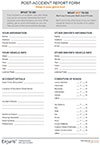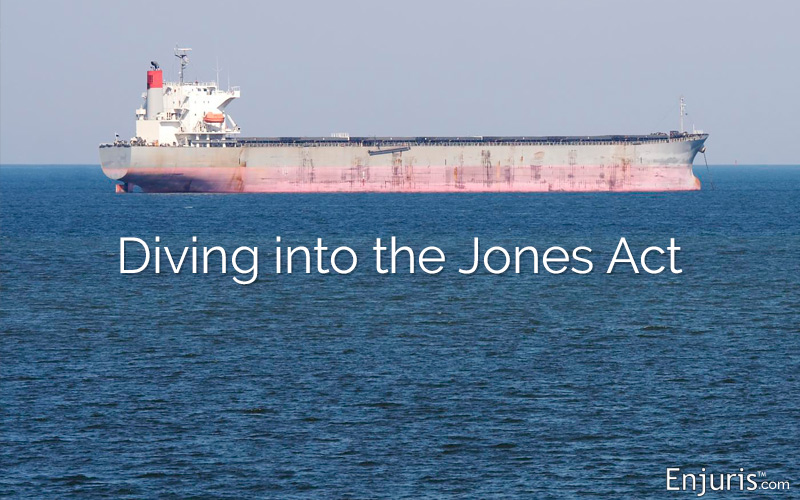Hablamos español.
How to qualify and receive compensation under federal maritime law
If you’ve been injured in a drilling accident off the coast of Texas and are considering filing a legal claim, you need to be familiar with the Jones Act.
The Jones Act is one of the most note-worthy admiralty or maritime laws, which generally cover the transportation of goods over navigable waters. The Act could have a significant impact on your offshore drilling claim because it offers protection for certain workers injured in certain navigable waters.
Without further ado, let’s dive in.
History of the Jones Act
The Jones Act was passed in 1920, titled after its sponsor Senator Wesley R. Jones from Washington State.
Its original purpose was to protect merchant marines after a United States fleet was destroyed by the German navy during World War I. As a result, much of the Act focuses on requiring that all goods being shipped between US ports are transported by US vessels and providing increased national security during war times.
But the Jones Act also contains another component relevant to Texas workers. Specifically, the Jones Act gives seamen who were injured in the course of their employment the right to sue their employer for personal injury damages.
Tweet this
Basics of the Jones Act
Under the Jones Act, seamen injured in the course and scope of their employment can sue their employers for personal injury damages if they feel they’ve been injured due to negligence while working offshore. (Unlike most land-based workers, seamen aren’t entitled to workers’ compensation benefits and therefore the Jones Act is their only chance at recovery).
Who qualifies as a seaman?
Not everyone who works on the water is considered a "seaman" under the Jones Act. Federal courts have interpreted “seaman” to mean an individual who performs work on a vessel that operates in navigable waters. The individual must spend at least 30% of their time onboard to qualify (though there are exceptions).
Of course, this raises 2 more questions:
- What’s a vessel?
- What are navigable waters?
A “vessel” under the Jones Act includes barges, dredges, drill ships, crew boats, supply boats, and floaters. Given the development of new technologies in the oil industry, the definition of “vessel” is always changing and it’s best to consult an experienced maritime attorney about your specific situation.
The term “navigable waters” refers to waterways capable of being used for interstate or foreign commerce.
Proving negligence under the Jones Act
Under the Jones Act, an injured seaman must prove that the owner, captain, or crew of their vessel was negligent in order to recover damages.
This means the seaman must prove 3 elements:
- The defendant owed the seaman a duty of care (under the Jones Act, a seaman’s employer is required to provide the seaman with a reasonably safe place to work and must use ordinary care under the circumstances to keep the vessel in a reasonably safe condition),
- The defendant breached the duty of care, and
- The defendant’s breach played at least a small part in causing the seaman’s injuries.
Let’s take a closer look at the last element (“the defendant’s breach played at least a small part in causing the seaman’s injury”). Notably, this element is easier to prove under the Jones Act than in a traditional negligence case.
In a traditional negligence case, the plaintiff must prove that the defendant’s breach was the cause of the injury. Under the Jones Act, the plaintiff needs only to prove that the defendant’s breach played a part in the injury (i.e., was a contributing factor, no matter how small).
Compensation for Jones Act workers
Under the Jones Act, injured workers are entitled to all the usual types of compensation available in a Texas personal injury case, including lost wages, medical expenses, and pain and suffering.
Additionally, an injured seaman is entitled to room and board (on the same basis as that which was provided onboard the vessel) and medical expenses. Room and board and medical expenses are available regardless of whether the employer was at fault for the injury (so long as the seaman can prove that they were injured while working).
In the case of wrongful death at sea, the victim's family may also be entitled to compensation to cover funeral costs, loss of companionship, and loss of financial support.
Finally, in some cases, such as when the owner of the vessel willfully withholds payment of maintenance and cure, punitive damages may be available.
To ensure that you receive the compensation you deserve, be sure to keep track of all your medical expenses and day-to-day aches and pains following an offshore accident.

Sample post-accident report form to keep in your glove box - fill out at the scene or as soon as you can after a car accident
Download in PDF format

Damages worksheet to track expenses for your injury claim (medical treatment, property damage, lost wages, prescriptions)
Download in PDF format
See our guide Choosing a personal injury attorney.


